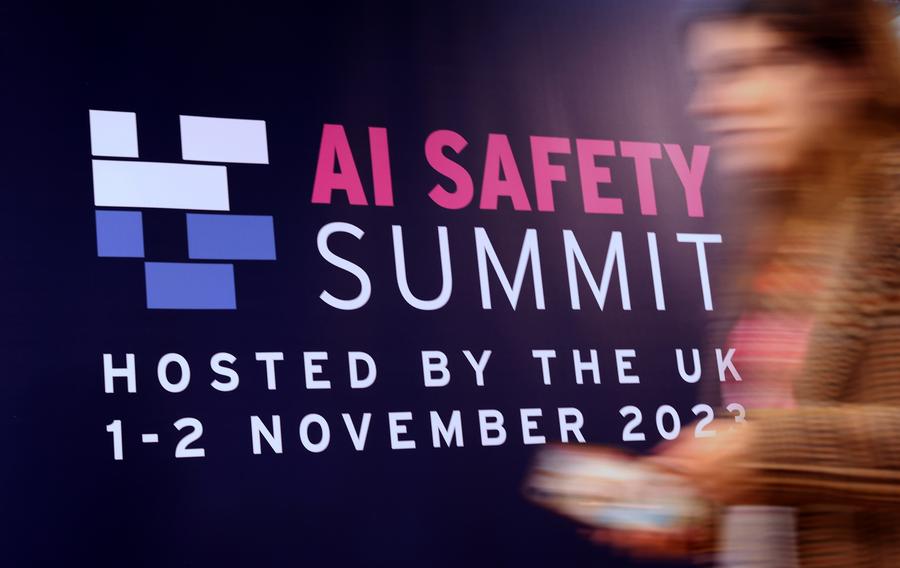
Too strict rules could deter investment in AI innovationCYL699.VIP, industry experts in the United States have warned, urging policymakers to prioritize flexibility in regulating AI technologies.
SACRAMENTO, United States, Oct. 9 (Xinhua) -- U.S. experts urged policymakers to prioritize flexibility in regulating artificial intelligence (AI) technologies, arguing too strict rules could deter investment in AI innovation.
A heated debate over AI regulation was sparked by the controversial Senate Bill 1047 in California which would have placed liability on AI developers for severe harm caused by their models. It also required developers to publicly disclose their testing methods for assessing the likelihood of critical harm and conditions for shutting down models before training began.
The bill, also known as the Safe and Secure Innovation for Frontier Artificial Intelligence Models Act, was vetoed by Governor Gavin Newsom on Sept. 29 over concerns of curtailing innovation and jeopardizing the state's leadership in AI development.
Some AI industry investors echo this concern. Lu Zhang, founder and managing partner of venture capital firm Fusion Fund, told Xinhua Tuesday that many AI researchers and tech leaders were worried that the regulation would slow down the evolution of AI technology.
Newsom's veto "was celebrated among the industry to continue investing the resources, capital, and talent into this amazing future technology," she added.
A new Brookings Institution report shared similar viewsCYL699.VIP, saying that premature or heavy-handed regulation of AI could inadvertently slow progress and limit potential benefits. The report, published just a few days before the veto, highlighted the challenges of regulating a rapidly evolving technology.
"Regulating new, fast-changing technology is very difficult, both in theory and empirically," wrote economists Kevin A. Bryan and Florenta Teodoridis, authors of the report. They warned that since innovation was usually under-incentivized, overly strict AI regulation could exacerbate underinvestment in the sector and reduce vital experimentation.
The Brookings report suggested that policymakers should consider how regulation impacts innovation, not just end products. It recommended fostering collaboration between private companies and universities to balance the strengths and weaknesses of each sector in advancing AI responsibly.
Flexibility in regulation is another key point emphasized by the authors, given AI's rapid evolution. They noted that AI regulations proposed in 2021 by the European Union and some U.S. states failed to address large language models or generative AI, which have become major focuses in 2024.
"An AI regulation set today without flexibility is unlikely to foresee either the harms or benefits of AI as it will exist in 2027, let alone 2037," the report said. It suggested regulators focus on specific, foreseeable harms rather than broad restrictions, given the uncertainty surrounding AI's future capabilities.

Zhang also noted that the near-term fears about AI may be overblown. "I think we're exaggerating the threat of AI, at least in the near term," she said.
She argued that for at least the next five years, AI would still require significant human oversight due to the limitation of data used for training and other technical challenges, such as huge energy consumption driven by data centers.
在选择传奇发布网新开服时,确保选择一个安全可靠的平台是非常重要的。以下是一些建议,帮助你找到相对安全的传奇新开服:
近日,备受瞩目的《仙剑奇侠传四》重制版前导预告震撼发布,彩娱乐招商加盟瞬间点燃了广大网友的热情讨论。这款经典的RPG单机游戏即将登陆PC及主机平台,借助虚幻5引擎的强大力量,它在保留原作精髓的基础上实现了全面革新,画面质量实现了质的飞跃。
Nonetheless, Zhang agreed that some regulation would eventually be necessary.
"I do agree regulations are necessary for a new technology, and I think the tech industry is open to embracing regulation when it's proper time," she said. "However, we should not slow down AI innovation, because we're in the critical moment of AI innovation right now."
The regulation of AI has sparked widespread discussion since the technology's emergence in recent years. A global study released last year found that three out of five people, about 61 percent, were wary about trusting AI systems, while 71 percent of the total respondents believed that AI regulation is required.
The study, conducted by researchers from the University of Queensland and KPMG Australia, surveyed more than 17,000 people from 17 countries including Australia, China, France and the United States.
In AugustCYL699.VIP, the European Artificial Intelligence Act (AI) officially entered into force as the world's first comprehensive regulation on AI. Companies that violate the rules of the AI ACT could face fines of varying degrees, with the maximum being up to 7 percent of their global annual turnover.■
